Hapkido, Lady Whirlwind (1972)
Directed by: Huang Feng
Written by: Ho Yan, Hua Yi-Chung, Huang Feng
Starring: Angela Mao, Carter Wong, Chang Yi, Sammo Hung, Wang in-shik
ANGELA MAO: HAPKIDO and LADY WHIRLWIND
AVAILABLE ON BLU-RAY: NOW, from EUREKA ENTERTAINMENT
Apologies to Eureka for the lateness of this review; it’s been an extremely busy time for the Doc. But now at last I’ve been able to delve into Eureka’s latest Hong Kong movie set, featuring a lady probably most famous for her role as Bruce Lee’s sister in Enter The Dragon, but who was one of the first female action stars despite having a film career which only lasted ten years….
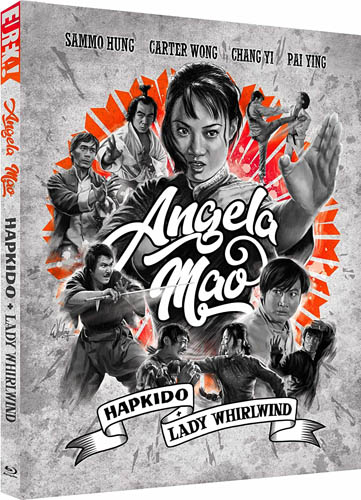
DISC ONE
LADY WHIRLWIND [1972]
AKA TIE ZHANG XUAN FENG TUI
RUNNING TIME: 89 mins
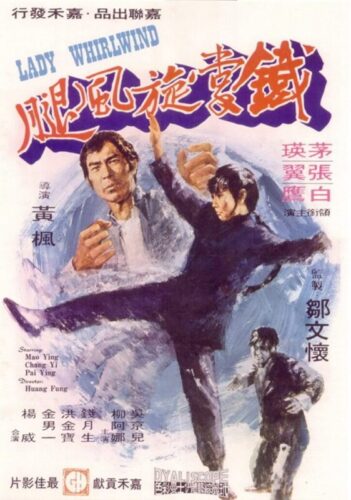
Ling Shih-Hao has misgivings about smuggling for gangster Tiao Ta Niang, so, he’s beaten up by her Japanese partner Tung Ku and his men and left for dead. Three years later, a lady named Tien Li Chun shows up at one of Tiao’s casinos. She badly wants revenge against Ling for something, and demands that she turn him over. He isn’t there, but she eventually finds him at a secret place outside of town, being nursed back to health for revenge by Sheung-sheung whom he’s fallen for. Ling requests one more day in order to complete his own personal mission before accepting Tien’s retribution, and Tien agrees, but must therefore aid Ling against the gangsters and their new leader Tung Ku so that nobody kills him before she does….
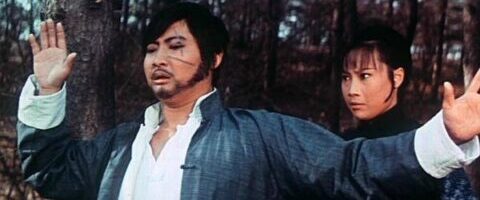
Hapkido is first billed on this set, and one can see why; it’s by far the better known of the two films, and even briefly topped the American box office before the film it beat – something called Enter The Dragon – regained first place. However, Lady Whirlwind actually came first and is on the first disc, so let’s begin with that. Bruce Lee said that he didn’t want to make films which were “one long unarmed hassle”, but Lady Whirlwind certainly can be called that, as it really is jam packed with so many fights that, unless you really do love this stuff, they can begin to sort of blur into each other, even though one can’t not like a film with the line, “You mustn’t kill him because I want to”, while, fortunately, I’m one of those who really does love this stuff, and it still shouldn’t matter much if the fights are varied, and if there’s a lot of skill on display. There is indeed an attempt at the former, especially regarding location with brawls happening all over the place, and the skill’s certainly there, with some terrific moves and some moments where suddenly what we’re watching is raised to another two or three levels, even if much of the fighting is off the “flailing arms” variety with participants throwing in techniques from every martial art they can think of. This may disappoint some, seeing as Hung is fight choreographer, but this was early days for him. Clearly filmed in the middle of winter judging by the steam coming out of people’s mouths, the Korean-shot film has none of the elaborate sets of the films from Shaw Brothers, but then Golden Harvest was only starting out, and this film does have something that really distinguishes it; an interesting twist on the common “revenge” theme which contains some genuine psychological depth, therefore meaning that the viewer is really engaged and not at all sure how everything will play out. And Mao does rather well as the vengeance-seeker who has misgivings about what she’s planned to do.
Of course we get a fight right from the offset, with Sheung-sheung walking through the woods and coming across Ling being attacked by a group of men. He flees and suddenly we’re by a lake surrounded by mountains which was probably much further away then we get the impression of. Wen Tien, the gang’s leader, tells Ling that he’ll leave him alone if he will just, “Get this merchandise to Canton”, but Ling wants out, so he has to be punished and is beaten to a pulp. The credits come up, then we see Mao enter this casino and win so much money that she’s noticed, then says that she’s looking for Ling and demanding that he be handed over. However, he’s apparently not there and the owner of the place, who’s the brother of Taio the female boss, takes offence at a woman telling him what to do. It’s funny seeing Hung with a moustache being told he’s no good by his sister and boss Taio, who’s the second of three prominent female characters in the film, the third being Sheung-sheung who we first see being hassled by Wen and co. in an inn, something which of course turns into another fight when a Japanese guy seems to help, only he turns out to be the new boss of the casino, something that makes his aid bizarre. Then follows a bit where Taio says that the Japanese man, named Tung Ko, can go to a brothel and find a “bird”, and Tang doesn’t understand her. Well, he wouldn’t would he, seeing as it’s English slang, in a strange choice by the writers of the English dub; the subtitles on the Mandarin dub change it to “maiden”, which I guess is better. Tien follows Sheung-sheung to where she’s been living with Ling, possibly as lover as well as friend and patient, though this isn’t actually stated.
Ages ago Ling told Sheung-sheung that his ex died, but he neglected to mention that it was because he dumped her, and while she was pregnant too. This all comes out now, with Ling claiming that he was forced into it, but neither lady considers this to be much of an excuse. Tien is her sister, and is out to kill Ling. This major dramatic scene is really quite well written and acted as long as you accept the melodramatic style which comes with these films. We feel for each character and they react believably. Tien promptly beats up Ling until knocked out by Sheung-sheung, then agrees to let Ling go on his revenge mission but will still kill him after he’s finished. Sheung-sheung wants to go with him, but it’s Tien who may be needed because she’s clearly a better fighter than Ling. He, however, comes across an old man who’s been bitten by a snake; he tells him how to heal him and – lo and behold – has a book called “The Art of Tai Chi” to give to him, which makes a change from the usual weird and wonderful types of kung fu that these manuals are usually about, though it actually seems to be far more about the “Iron Palm”. There’s no montage of him training Ling; instead, he just gives him a few good pointers such as “kick from the hip“, and then we get a montage of him training himself in an average sequence of its kind. Soon he’s able to kick the heads off lots of grass dummies and – get this – catch a boulder with just one finger. You can, of course, predict some of what follows, but not necessarily the conclusion. I will tell you that Ling has the last fight, and that’s probably right even though we may want Tien to have it instead because, after all, we’re here to see Mao far more that Chang, aren’t we? However, the final scene, while probably concluding in the best manner, is incredibly rushed. Of course one of the nice things about these films is that they tend to end very quickly, but here we feel cheated because we’ve become invested in these characters and their journeys.
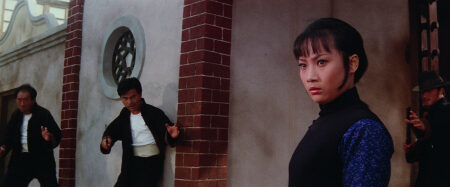
So there’s lots of hand chopping and people falling great distances, while scenes when one person is attacked by many have people staying back until it’s their turn, but every now and again things loosen up. After her casino fight, Mao gets another one with the same people: Hung gets two more scars in addition to his real one, then the two later have a rematch, though Hung is either holding back slightly or wasn’t quite as good as he soon became. Mao’s encounter with Pai Yung, playing Ko, is probably her best fight because Yung’s clearly been asked to properly show off his karate mastery and Mao has to really step up her game. “So what if you are a karate expert? You don’t scare me that way”. Alright, you bitch, just you watch me, I’ll show you what karate is all about”. Her coolest bit might be where she’s under a table and drives her sword through and out the top to impale the person trying to get at her. She’s sometimes required to suddenly become more peaceful and compassionate before slipping back into straightforward revenge mode which she pulls off very well, especially when her character is with Sheung-sheung with whom she forms a bond even though she doesn’t want to and dislikes herself for doing it. She doesn’t need to emote greatly because her expressive eyes do much of the work, and you’ve got to love the way she doesn’t sweat. As for Chang, playing a rare good guy, he doesn’t have Mao’s charisma but gets the best of the film’s many one-vs-many fights, where, in an inn, he battles opponents with bare fists, table legs and knives, at one point taking things up to the second floor before leaping back down again – and yes, you do get some obligatory gravity-defying bits constructed through editing, like Mao leaping into the air before Hung, snaking both his feet around her neck so she nearly breaks it in another cut, before we cut to her already standing on the floor. Chang’s final fight is with Chin Yuet-Sang and it’s a fairly good battle with a particularly bloody end; in fact the red stuff really flows in this film, to the point where eventually almost any punch seems likely to pierce a small gory hole in somebody!
There are some interesting edits and some good positioning of characters within the frame, suggesting that Feng had some genuine skill as a filmmaker beyond just letting the fights play out with few cuts – which is of course just what we want. As co-screenwriter with Hua Yi-Chung he does an especially good job in constructing a strong situation and plot which still allows for a fight every ten minutes. We’re actually asked to seriously consider the subject of revenge, and if it can really be a good thing for a person. SPOILER As Mao’s character goes off at the end, we wonder if she may come across some poor sap and take out her anger on him, because her need doesn’t seem at all to be satisfied. SPOILER END. The music “score”, an early credit for Joseph Koo though of course he just compiled existing tracks, really deserves note, at least for its diversity. The lush opening piece, which sounds like Michel Legrand, is never heard again, but the other cues he uses are well placed several to underlay certain elements, like the guitar piece for the old teacher. Two tracks are by Ennio Morricone, one for suspense, one lyrical which serves as a love theme, while one piece from John Barry’s Diamonds Are Forever is for the villains. Perhaps most strangely, the music for the big love scene in Vertigo shows up once, while tiny bits of Psycho plus the theme from Marnie, all by Bernard Herrmann, also appear; at one point one flows into the other. Some of this music seems too florid for what’s taking place on screen, and as usual the pirated recording doesn’t sound particularly great. But Lady Whirlwind remains oddly emotional, its story leaving a lasting impression despite all the mayhem that surrounds it.
Rating: 









DISC ONE SPECIAL FEATURES
Mandarin mono
English mono [vintage “classic” dub]
If you love these dubs than you know what to expect. For me, they’re part of the fun of these films.
New feature length audio commentary with Frank Djeng & martial artist / actor Robert “Bobby” Samuels
Apparently most of the villains in this film are Japanese, but I don’t think you’d know it from watching the film, except for one particular character. That’s just one of many several interesting things I learn in this audio commentary from a pair who have become among the best in the business. Okay, a few things sometimes get repeated, such as Samuels’s time working and living with Hung and Djeng shopping for shoes with Joyce Godenski Hung’s wife, but then not everyone will have bought every Eureka and 88 Films Hong Kong movie release. Here, Samuels tells of how he met Mao after she turned down a lifetime MTV award but then recognised him from old photographs form when he was also pictured out with Hung, while Djeng says that Mao claimed that all the interiors were shot in Hong Kong yet that seems odd what with all the Korean extras in some scenes. Samuels also explains why these films were so popular with African-Americans. There’s a fair amount of scene-specific talk and the love these two have for these films is again pulpable.
New feature length audio commentary with Asian film experts Frank Djeng (NY Asian Film Festival) & Michael Worth
This track plays like an alternate version of the above, with Djeng saying many of the same things or very similar as he did before, though I don’t recall him mentioning that he preferred Lady Whirlwind to Hapkido because of its spaghetti western elements. Worth is very on the ball about filming technique and points out a lot about Feng’s filmmaking here, indicating that he’s really rather good, as well as describing the three main types of the “basher” martial arts movie, which can be summed up as – schools, revenge and political. I found it especially interesting that Djeng was able to see the Golden Harvest films in cinemas as a child; they had no age restriction unlike with the Shaw Brothers movies which were shown in Shaw-owned cinemas. I’d advise the buyer to listen to this track a few days after the first on; it will probably be more rewarding that way.
New feature length audio commentary by film journalist and author Samm Deighan
Yes, it’s a third commentary, and by somebody going solo. Deighan does spends rather a lot of time on biographies [veteran readers will know that it’s one of my pet hates of talk tracks unless they’re really brief] but does provide much scene-specific insight and information of a wider kind, being especially detailed on the state of the Hong Kong film industry at the time and the rise of Golden Harvest which received an exodus of talent from Shaw Brothers where they’d suffered low pay and strict control. Shaw also rarely promoted single star or director talent which Golden Harvest were happy to do so. She also reminds us that Mao was a rare female fighter for the time and not sexualised or given a love interest. There’s surprisingly little repetition from the other two tracks here.
Lady Whirlwind Speaks with Angela Mao [13 mins]
This is the first portion of an interview split into two parts, this one understandably covering her early years, beginning with her childhood in Peking Opera. She says that wearing winter clothes in the summer and vice versa was hard to adjust when she began making movies, describes King Hu as always having very precise storyboards and technical decisions about what was to be shot, and that she didn’t know that she was as famous as she was until fans started coming into her restaurant to see her. I get a vague impression of Mao not being particularly proud of her action star days in the past but coming more and more to terms with it.
Kung Fu Cooking with Thomas King [32 mins]
Mao’s son is interviewed by Djeng at The Shack, which is a sister restaurant to Mao’s Nan Bei Ho place which is next door, and very nice it looks too. King tells of when he truly realised his mother’s fame, beginning with when his son’s friends watched Enter The Dragon and wanted to interview her when they recognised her, He also says that she warmed to the issue because most of the fans who visited were of an older generation and respectful, and believes that it’s important to preserve these films to show the younger generation what came before what they’re familiar with. The second part of the interview discusses the restaurants, including opening The Shack during the pandemic. Unfortunately this made me hungry – for Chinese food – and there isn’t a particularly good Chinese restaurant locally.
Alternate English credits
Trailers gallery
Images gallery
DISC TWO
HAPKIDO [1972]
AKA HA QI DAO
RUNNING TIME: 97 mins

It’s 1934 and the Japanese have occupied Korea. There, Shih Kung-chan, an exiled master, bravely teaches hapkido in defiance of the Japanese dislike of any indigenous martial art form. Yu Ying, Kao Chang and Fan Wei have all just graduated and set off for China where they hope to set up their own martial arts school. This they do, and they use it for medical treatments as well. However, the Japanese rule the roost there as well. Master has stressed to them the importance of forbearance, but when Fan, the most hotheaded of the three, sees some members of the Japanese Black Bear judo school throwing their weight around at an inn, he loses it, beginning a series of reprisals between the two schools, with the unscrupulous, vicious Japanese being aided by some traitorous Chinese….
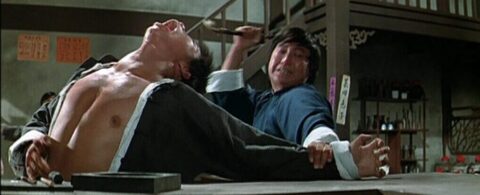
Hapkido seems clearly inspired by Fist Of Fury [though it’s possible that the popular Chinese vs Japanese schools plot first turned in the Jimmy Wang-Yu starrer The Chinese Boxer] even if it was completed before, and even seems to reuse some of its sets. It also contains the theme, which was to the fore of Lee’s first three films, of violent reprisal maybe not being the best course of action and something that can lead to tragedy, though its’s not as full on and there are no cops played by Lo Wei to slow down the action. Here, the story is really just an excuse for one fight after another, even more so than with Lady Whirlwind, but there’s a clear advance in the quality of the action, with choreographer Hung trying a lot more things and making his fights flow better. Not particularly appealing for some these days will be the portrayal of the Japanese, who are really horrible here; they beat up everyone in sight and lech at Chinese women, usually while laughing wickedly for absolutely ages, but then Chinese resentment of the Japanese was still strong at the time, so the filmmakers were giving the people what they wanted. And interestingly it’s a Korean martial art which is showcased, and sometimes by Korean characters, though I’m sure that hapkido doesn’t involve bouncing off walls and twirling in the air. As for Mao, this one again showcases her acting ability despite playing a less interesting character, though it’s an hour before she’s allowed to let loose in what’s a bit of a tease, with Sammo Hung and Carter Wong more prominent up to then.
We open in Korea – in fact it takes us quite a while to get to China. Some people are out having a nice picnic, listening to music and even dancing, before a nasty Japanese guy comes along and immediately tries it on with one of the girls there, only to find that she’s having none of it. This is, of course, Yu Ying, and watching the scene are her hapkido brothers Kao Chung and Fan Wei, and Fan Wei wants to intervene, immediately letting us know that he’s the one with the least patience. Finally Kao Chung can’t hold him back and he strikes the lech, who has his own men as backup. A fight follows, and what’s surprising is that, in the lengthy following scene set in the school where the three have just graduated, there’s no mention of this encounter. You’d think that Master Shih Kung-chan be sending them back to China because they’ve got into trouble. Even the titles play over some action, our three training with a load of other students and each other while the credits appear in various corners and a bizarre Emerson, Lake and Palmer track [“Eruption”] plays, a sort of funk speeded up insanely. Teacher is most pleased with Yu and Kao, but sees flaws in Fan because,“There’s no planning in your attack”. He explains that in hapkido “you lead with your mind, not your fist”. Some board smashing follows, then teacher showing who’s still the boss, before our three friends are ready to leave, so he gives them new clothes, a metal bar which is “the symbol of hapkido”, a letter which must be opened when trouble strikes, and a warning that the Japanese are in China, which makes one wonder why they return there. Nonetheless that’s where we next see them, deciding to visit the other local schools out of politeness and respect. Their Eagle School of hapkido is welcomed, but they’re warned about this Black Bear school.
Fan gets led astray when he goes to a meal with a new-found buddy and sees some Black Bear students leave without paying, hit the owner and molest Miss Xiu, the innkeeper’s daughter. Fan defends her, then doesn’t want to engage in a proper fight until taunting gets the better of him. After his victory he even pays for the damage, a rare thing in any movie where things are wrecked. We pretty much know that we’re now going to get a series of escalating reprisals. One soon loses track of the many shots of the Japanese walking towards and going into the Eagle School. First of all some of them come in and their leader tries it on with Yu who’s just treated a patient [we know how good they are because they don’t ask for payment], causing Fan to rip off some of his hair and Kao to beat him up. Then the two men go to the Black Bear school to make up, but while they’re there the Japanese return, while just Yu is there, and take down and destroy their sign. Around the same time, Fan defends a stall seller and his wife against some of the same bullies, one of whom nastily pours boiling water over not just some fish and rice but the owner’s wife’s head. Kao is at the Black Bear school trying to patch things up, but the Japanese won’t let him leave without a fight. He does well against many of them in the first of three fights clearly inspired by the Fist Of Fury dojo fight, but is eventually defeated and has his arm broken, after which he’s unceremoniously dumped into the Eagle School. Fan Wei goes into hiding while Yu still strives for peace, but we know how that will turn out though maybe not everything. Unhappy things take place, while by the end we don’t get much of a sense of release.
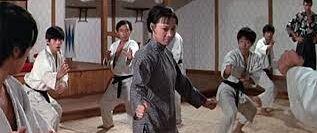
There’s so much fighting it’s impossible to detail it all. Awesome technique and well worked out rhythm is more prevalent than before, though Carter Wong is a tad staid in his debut acting-wise. It’s still he and Hung who take over the action for some time, and mainly Hung seeing as his character is always getting into fights. After the inn brawl he engages in the street fight where some locals aid him against the Japanese thugs, the highpoint here being when he takes his jacket off and uses it as a weapon. It’s amazing seeing the burly Hung jump over tables, and he also mimics a few Lee moves for the first of several times in his career. He doesn’t get to fight a huge number of Japanese but both of his co-stars do, Mao twice in two very similar scenes, the first of which didn’t need to be in the film and feels like it was plonked in to give Mao another brawl, which is as good a reason as any seeing as for much of the film she doesn’t fight at all. Wong’s famous super-kicking ability is already present. His battle with lots of Japanese is followed by him fighting two Japanese swordsmen, though his best fight might be his face-off with Chang Yu who gets to fight both of his co-stars too, the hero of Lady Whirlwind given the part of the most prominent baddie. As for Mao, she’s given another helper near the end, which is disappointing despite it appropriately being hapkido master Wang in-sik in his debut – it partly ruins the rather progressive portrayal of her character who’s accepted by all her brothers as an equal, though would this have been the case in reality? Her ploughing through the Japanese is incredible, with an incredible spinning kick bit probably being the highlight, and she even takes over from Wang when he’s in trouble. At one point she uses her pigtails as a weapon, but her driving of an umbrella into a foot could be the highpoint of her acts of brutality, in another pretty bloody film which was originally heavily cut in the UK despite featuring no nunchucku.
Yi is a pacifist, torn between her belief in non-aggression and righting terrible wrongs which soon pile up, allowing Mao to simmer in terrific fashion, pushed and pushed until she finally explodes. Even when she carries out her greatest violence on the horrid Chinese and even a Korean helping the Japanese, Mao exhibits an intense stillness, which works in great contrast to the broadness of much of the performing around her, with lots of gesticulating and intense looks, though the clownish portrayal of most of the villains was probably intentional in a film which otherwise contains no humour except for a closeup shot of boobs when Miss Xui is being groped. This seems especially the case with Secretary Zhan, played by Wei Ping-Ao who essayed a similar role in Way of the Dragon. Toyoda the Japanese big boss is oddly introduced in a swivel chair even though they weren’t invented yet, while, talking of Miss Xiu, she ends up being a surprisingly prominent character and she and Mao share chemistry in their major scene together. Many other Lee film alumni turn up such as Ho Li-Jen, while no less than Jackie Chan gets punched and elbowed by Mao before rolling all over the floor. Apparently Yuen Biao, Lam Ching-Ying, Corey Yuen and Billy Chan are around too. Feng’s direction contains more little quirks than before with odd jump cuts and angles, there’s an effective dark mood to a scene set in an underground room involving a terrible discovery, even if it’s clearly inspired by a similar one in The Big Boss. Despite that bonkers opening music, there’s very little of such stuff in the film itself, the no doubt borrowed cues being mainly moody in tone; all I recognised were a few seconds of a track from Bernard Herrmann’s Psycho! Hapkido isn’t as interestingly plotted as its predecessor but tops it for quality of fighting.
Rating: 









DISC TWO SPECIAL FEATURES
Mandarin mono
English mono [vintage classic”kung fu” dub]
If you’re a weirdo like me and prefer to watch these films with the English dubs, then I’d recommend you hear the second of the two options, as this version sounds rather faded, not to mention it mistaking hapkido for kung fu.
English Mono [vintage classic “hapkido” dub]
Somewhere along the line a revised version of this dub was produced, with kung fu replaced with hapkido. It’s done with little finesse, with the voice-over artists being used sounding nothing like any of the performers. However, the whole track is a lot clearer, if still a little poor. It’s average as these things go, though the endless hysterical laughter of the bad guys is copied from the Mandarin dub.
English 5.1 [revised dub]
A few minutes of listening to this dub revealed it to be the usual later dub; it lacks flavour and personality
New feature length audio commentary with Frank Djeng & martial artist / actor Robert “Bobby” Samuels
These two are always great together, but seem to reach a new level with this track, with their effortless conversation and love of this kind of film a wonderful listen. Djeng brought Mao to present Hung with an award at a festival while Djeng orchestrated a reunion between Mao and Ji Han Jae who as well as playing her teacher in the film was her hapkido instructor in real life. Samuels says how he was often mistaken for Hung’s bodyguard, while Djeng informs us that Ping-Ao was in prison for two years for killing a man. I loved it when Samuels says how he’d secretly record the audio of the martial arts films he’d go to see in his youth and listen to it in the school library. Familiar faces are also pointed out, including no less than three other appearances by Chan that I missed. Lovely stuff.
New feature length audio commentary with Asian film experts Frank Djeng (NY Asian Film Festival) & Michael Worth
Again, Djeng’s track with Worth plays like an alternate version of his previous one with Samuels, with Djeng saying some of the same things but going into more detail about certain aspefcs, generally leading the chat though Worth certainly provides stuff of interest too, such as that he used to record films like this he saw in cinemas with an 88mm camera! What naughty boys these people were [says the guy who used to copy videos he hired from the video shop]. We learn that Wei Ping-Ao was in prison for two years for attempted manslaughter, that the word hapkido translates as “Joining Energy Way” and some history, such as that the Japanese used to kidnap Korean flower girls [which Yu Ting is at the beginning] and turn them into prostitutes for the army. I suppose the one question which one is left with is: where are Mike Leeder and Arne Venema? But then Eureka did give us a third track for Lady Whirlwind.
Lady Kung Fu Speaks with Angela Mao [18 mins]
Mao tells us that it was Lee who invited her to be in Enter The Dragon for just one scene and two days worth of shooting but it ended up being more as her section was expanded, that Lady Whirlwind was put in storage until The Big Boss and Fist Of Fury had come out, and that her spinning kick in Hapkido had 52 takes! She also says that she continues to do her Peking opera training every day stops her from feeling old; well, she’s pretty young looking and vibrant for her age.
Archival interview with Angela Mao [16 mins]
The bulk of the interviews on these releases tend to come from Hong Kong Legends DVDs, but who knows where this and the following one originated? Here, we can hear the person asking Mao the questions and a few of them seem rather silly and pointless, while the bit where he replies to her about her real name sounds a bit rude, but Mao remains polite, and we do learn that Mao delivered two kicks to a man to tried to rob her which is the closest she came to a real fight, even though she clearly doesn’t want to criticise anything too much, hence her somewhat wishywashy answers to questions like what’s the best out of Hong Kong or Taiwanese movies.
Archival interview with Carter Wong [17 mins]
I’d like to tell you some of the things that Wong says, but there are times where you can barely hear him due to the muffled recording and the loud ambiance of the restaurant where the interview is taking place, while he also prefers to go through the plots of films rather than discuss his experiences on them. Still, we do learn that he was meant to be in Game Of Death when Lee originally conceptualised it.
Archival interview with Sammo Hung and Yuen Biao [9 mins]
At the end of this dual interview, we learn that it was done by Rick Baker and Toby Russell, so it was clearly done during the more underground period of Hong Kong movie fandom in the UK – though of course the young appearances of Hung and Baio could have also told me that! Baio recalls a childhood fight between him, Hung ang Chan over 50 cents, while Hung enthusiastically says that he wants Hollywood stardom.
Original vintage featurette [6 mins]
It’s fun to see Mao, Hung and Chang being trained by Ji-Han, both doing various techniques with him and in a large group doing moves.
Alternate opening credits
Trailers gallery
Image gallery
SPECIAL FEATURES
1080p presentations of both films across two Blu-ray discs, from new 2K restorations
Hapkido looks the better of the two films because it has a brighter colour palette and has more technical proficiency, with Lady Whirlwind suffering a bit from very grainy zooms and out of focus shots, the latter being most notable during a fight sequence around the middle of the film. Even with Hapkido, dark shots often don’t seem dark enough, but it would be wrong for Eureka to fiddle with this, and likewise the use of the anamorphic lens in both films which means that people look very thin on the far sides of the screen; this is most obvious in an early scene from Hapkido when lots of people are sitting down. I’ve probably spent too much time criticising such things, because these films still look probably better than they did in cinemas. Any other readers old enough to remember how awful they looked on video?
Limited Edition O-Card slipcase featuring new artwork by Darren Wheeling [2000 copies]
Limited Edition Reversible Poster featuring original theatrical poster artwork [2000 copies]
Reversible sleeve featuring original Hong Kong poster artwork
A Limited Edition collector’s booklet featuring new writing by James Oliver [2000 copies]
I’d rate both of these films equally because the first is stronger on plot and emotional engagement while the second soars much more with its action. I had huge fun with both which are essential viewing for martial arts movie fans, and the special features are the icing on the cake. Highly Recommended!


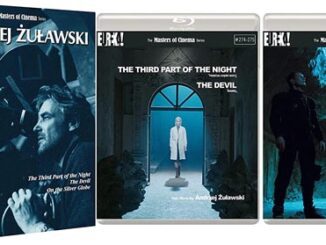
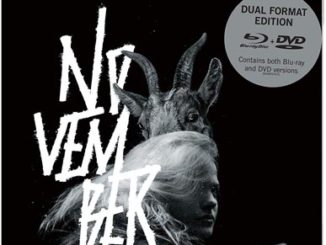
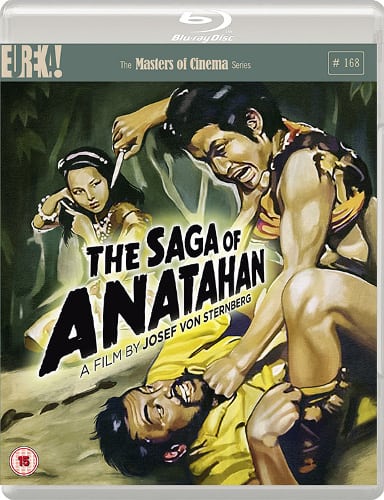
Be the first to comment